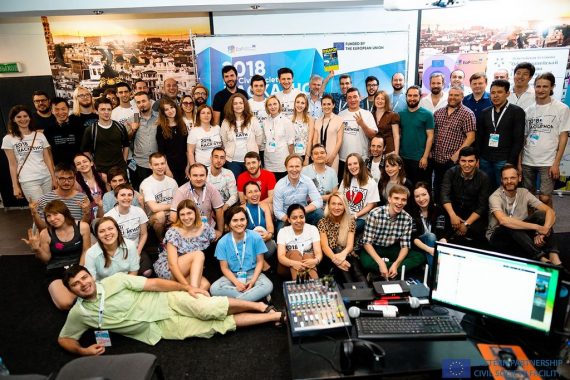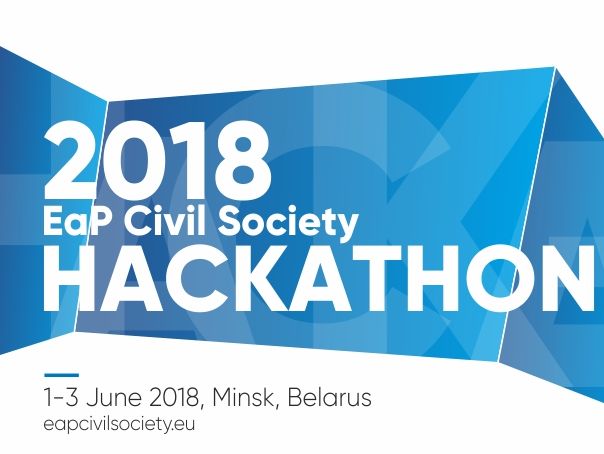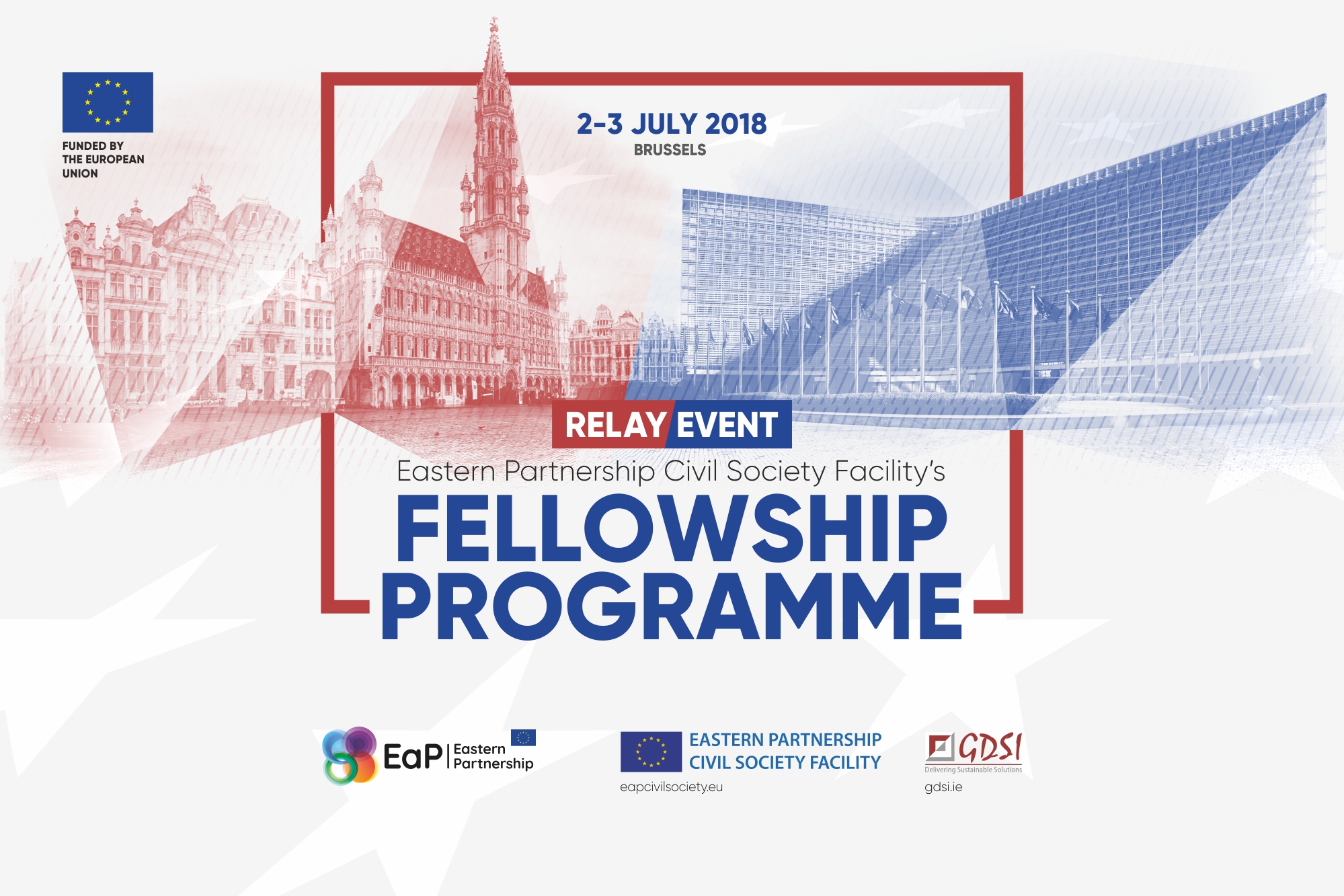
On 1-3 June 2018, EaP Civil Society Hackathon gathered in Minsk over 70 civil society representatives, IT professionals and designers from Armenia, Azerbaijan, Belarus, Georgia, Moldova and Ukraine to work on software projects that would enable civil society better contribute to reforms and democratic changes in their home countries. For 2.5 days the participants worked in hack teams of 3-4 persons on data research, ICT tools design and prototyping with the support of 11 mentors.
The participants of the Hackathon were welcomed by Mr. Jim Couzens, Head of Political, Press and Information Section of the Delegation of the European Union to Belarus.
As a result of this intensive work, 20 project ideas designed by the civil society activists were worked through and turned into the prototypes of IT tools and solutions: web platforms, accountability tools, online and mobile applications. These include a wide range of services for journalists, active citizens and volunteers, people with disabilities and people in difficult situations, drivers and pedestrians, local communities and local authorities.
Following the voting by the participants and the independent jury four ICT tools were nominated for the EU-funded Civil Society Digitalisation Award, a special facility that seeks to support the full-fledge development of the best ICT tool designed by the Hackathon participants. The nominees for the Award are:
- ProCancer – Chat bot that offers tools for cancer preventition, collection of medical data and forming the statistics
- Friendship Dictionary – on-line application to help journalists of online media reduce hostile language towards various minorities (gender, migrants, people with disabilities, etc.)
- Doika – module that helps to gather funds for NGO activity
- Lib4You – service for fast and easy search of libraries and rare books in libraries of Ukraine
The 4 nominees will be invited to apply for the Award within the Restricted Call for Applications in June 2018.
Overall, during the Hackathon 20 project ideas were worked through and turned into the prototypes of IT tools and solutions:
• Friendship Dictionary – online application to help journalists of online media reduce hostile language towards various minorities (gender, migrants, people with disabilities, etc.)
• HelpingHands – web-platform connecting volunteers and volunteer organisations
• Bezoman – platform for exchange of unbiased opinions: a website where all controversial topics are presented with opposite opinions
• NGO Dashboard – accountability tool to increase transparency of state-supported NGO programmes
• Doika – module that helps to gather funds for NGO activity
• Capital construction (Budget Eaters Monitor) – module to the Open Budget Platform on capital construction
• Deputat.by – service to increase transparency of activities of current and future people’s deputies
• Cancer Surveillance – a bot that offers tools for cancer preventition, collection of medical data and forming the statistics
• e-Activist Guide – website for people looking for e-Participation tools
• Food for All – web platform to sell food products with limited expiry date with the aim to raise awareness on problems related to mass disposal of food products.
• Mobility for All – Web Platform and mobile app to provide accessible mobility and transport routes for people with disabilities (PwDs) who have mobility difficulties – limited physical disability and wheelchair users.
• e-Participation for Budget Planning – a website and mobile app that allows citizens to have a direct impact on decision making in terms of allocation of public or municipal money
• WomanFire – mobile application for women to alert and report about sexual harassment cases in Azerbaijan
• LandsMap – interactive map for managing community lands to ease the process of land acquisition for local farmers
• EduPRO – mobile application for students mapping the problems in educational institutions with the system of anonymous alerts
• CityLights – mobile application to allow citizens identify and report problems with light illumination in Chisinau
• HelpIdea – platform to search for investors and present investment projects for local authorities
• Quack Hunter – game platform to hunt down fake news in the Eastern Partnership countries
• Lib4You – service for fast and easy search of libraries and rare books in libraries of Ukraine
• Klakson – mobile social platform for pedestrians and drivers.
Background information: The European Union is committed to supporting civil society in Eastern Partnership (EaP) countries, including through the support in the development of ICT tools for transparency, accountability, digital participation and public services. As a part of these efforts, in 2017-2020 the European Union’s Eastern Partnership Civil Society Facility project organises a series of EaP regional hackathons. A Hackathon is a collaborative interactive workshop resulting in the development of software solutions that can be used by civil society actors to address specific social issues.
The EaP Civil Society Hackathons also aim to facilitate the establishment of long-term cooperation between local civil society and IT community that would results in developing new ICT tools to empower digital participation of citizens, to improve transparency and communication of governmental decisions and spending, to enable broader participation in decision making process and to advance public services. More details about 2018 EaP Civil Society hackathon: www.ict.eapcivilsociety.eu




